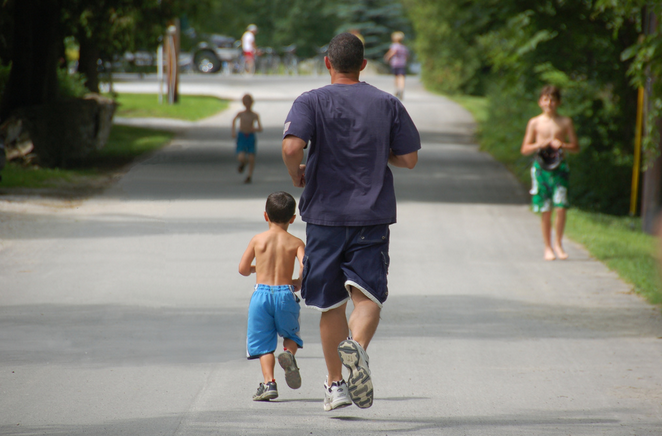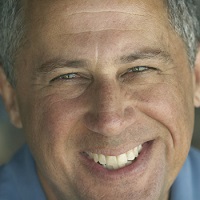I might be 20 years late, but after reading about Baltimore Raven’s running back Ray Rice’s two game suspension for punching out his wife, I wanted to comment on former NBA basketball star Charles Barkley’s 1993 Nike Air commercial, seen on YouTube by almost half a million people.
Mr. Barkley says, “I am not a role model. I’m not paid to be a role model. I am paid to wreak havoc on the basketball court. Parents should be role models. Just because I dunk a basketball, doesn’t mean I should raise your kids.”
While I haven’t spoken to him personally, I would guess that he, and most pro athletes, feel that their lives are their own; that their primary contract is with the person who pays their salary or their corporate sponsors; and that their primary obligation is to perform to expectations on the field, the court, the pitch, the pool, the slopes or wherever their athletic activity takes place.
Should a pro athlete’s deficient judgment and defective behavior lead them to, say, commit murder, sell crack, beat or rape women, drive drunkenly, squander millions in Las Vegas casinos, run dog-fighting rings, shill products for companies that employ children in sweatshops, perpetuate racism, sexism, and other forms of prejudice—let the law take care of it.
And if they haven’t broken a law, then so be it. They can do what they want, with parameters for behavior set only by their own code of ethics or morality, or by whatever code of conduct their pro league might have.
Pro athletes sacrifice much and work hard to achieve their success. The rewards of that and of the additional perks of celebrity (for those who attain that status), well, those belong to the athlete. Right?
I don’t dispute that Mr. Barkley is not responsible for raising the kids of America’s families.
However, the rest of his message is as misguided as if he were to say, “I do not have to perform on the basketball court. I do not have to develop my athletic skill and a winning mentality. I get paid to put on a uniform and lounge around and watch cute puppy videos on YouTube.”
Of course he gets paid to perform—he, himself, says that he gets “paid to wreak havoc on the basketball court.” I can scarcely imagine what learning to wreak havoc takes; probably years of work, dedication, and sacrifice.
I myself have never played basketball at any level. I did participate in high school sports: football, wrestling, cross county, and tennis. (Though I was thrown off the tennis team for allegedly throwing too many racket-breaking temper tantrums.) I also played collegiate soccer. But I really have no idea what it takes to achieve the level of athletic prowess and success of someone like Mr. Barkley.
I’m sure I would feel, as perhaps Mr. Barkley does, that what I earn is mine, in the same way any professional is entitled to keep what they earn and use it in whatever way they want. My lifestyle would be mine, too.
If you don’t like it, don’t watch me. Turn the channel, my friend. I’m not a role model.
Unfortunately, Mr. Barkley was not given the correct understanding, not in high school or at Auburn University, or on the Dream Team, or in the pros. It’s not his fault. Many pro athletes, men and women, do have the correct understanding. But many don’t.
Here’s the thing: wreaking havoc on the basketball court and being a positive role model for children are as inseparable as water and wet, or fire and hot.
Professional athletic performance and being a positive role model for kids are inseparable. To separate them would be to say that Mr. Barkley could stay on his team without scoring any points or grabbing any rebounds. No way!
He has to, because that’s the havoc he’s supposed to wreak.
Being a positive role model for kids, as if they were your very own precious babies, is the same as scoring points and grabbing rebounds.
Mr. Barkley does not have to raise America’s kids. No pro athlete does. However, when millions of kids worship and idolize them, when TV, movies, and social media glorify athletes and raise them to god-like status—Mr. Barkley, you are indeed a role model. You have no choice.
If you do not perform well on this part of your performance contract, the one you have with kids throughout the world, then you cannot play. You’re off the team.
These kids are yours, because of the influence you have on them. That’s just the way it is. Your price of admission to a pro sports career is your performance. If you perform, you play. If you don’t, you don’t. But pro-level performance includes being a positive role model for kids. If you perform, you play. If you don’t, you don’t.
I don’t blame you for not understanding this. You just didn’t get the memo. Now you’ve got it.
Still, you might wonder, What does a role model look like?
Sir Charles, role models are everywhere!
Just open your eyes, then your mind, then your heart. Pro athletes in every sport recognize their responsibility to the youth who idolize them. I’ll show you just one, but one who exemplifies and embodies “role model.”
Tamika Catchings.
Ms. Catchings is a star in the WNBA. You must know of her. She’s a former All-American NCAA champion at the University of Tennessee, a WNBA champion with the Indiana Fever, and a three-time Olympic Gold medalist with the USA national basketball team.
She is also the hands-on founder of Catch the Stars, whose mission is: “Empower youth to achieve their dreams by providing goal-setting programs that promote literacy, fitness and mentoring.” Yes, Catch the Stars provides plenty of programs for kids in athletics, academics, life.
“These kids get loved on by our instructors; they get nothing but positive words, which is something they might not be getting elsewhere in their lives,” Catchings says. “They might not be getting it at home or at school, and I feel like we are giving them hope for their future.”
Her Indian Fever coach, Lin Dunn, says about Catchings, “Off the court, she gives back to her fans and her community more than any athlete I have ever coached.”
This next bit from Tamika about being a role model is particularly important for you to hear:
“It takes time, and it can be tiring,” she says. “Literally sometimes after practice, the only thing I want to do is lay down. And I walk into the gym and see the smiles on their faces and the joy and excitement, and that supersedes all of the tired. It just takes all of it away. I get to spend time with the kids, and that’s all that really matters.”
That’s all that really matters. Tamika Catchings is truly a pro athlete, because she understands that being a role model, spending time with kids, using her standing and status to inspire youth in positive ways, is all that really matters.
Ms. Catchings defines pro athlete. Go and work with her. You’ll get it. I know you will.
Love elephant and want to go steady?
Sign up for our (curated) daily and weekly newsletters!
~
Editor: Emma Ruffin
Photo: Scott Ableman/Flickr


 Share on bsky
Share on bsky





Read 1 comment and reply